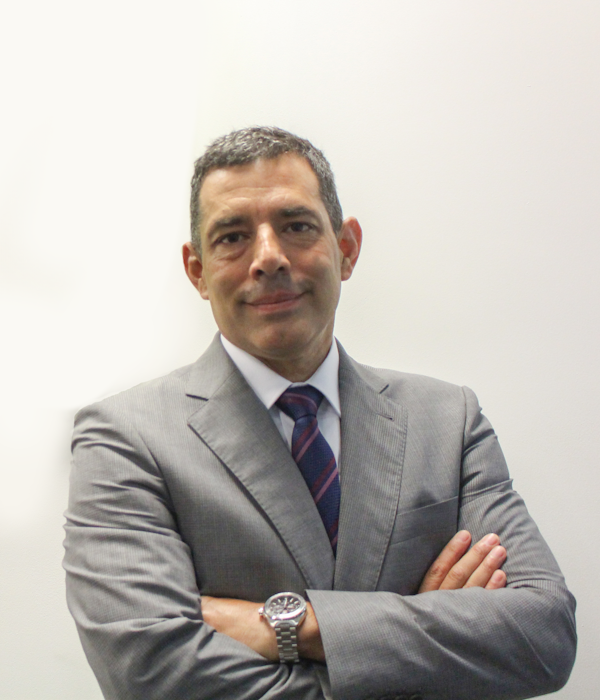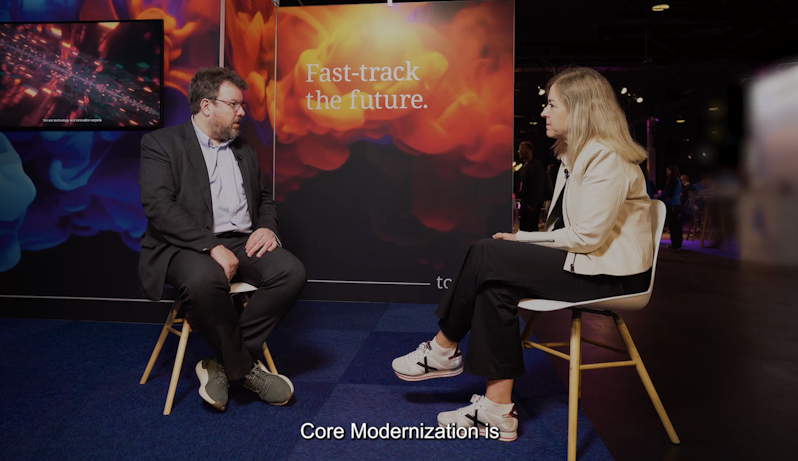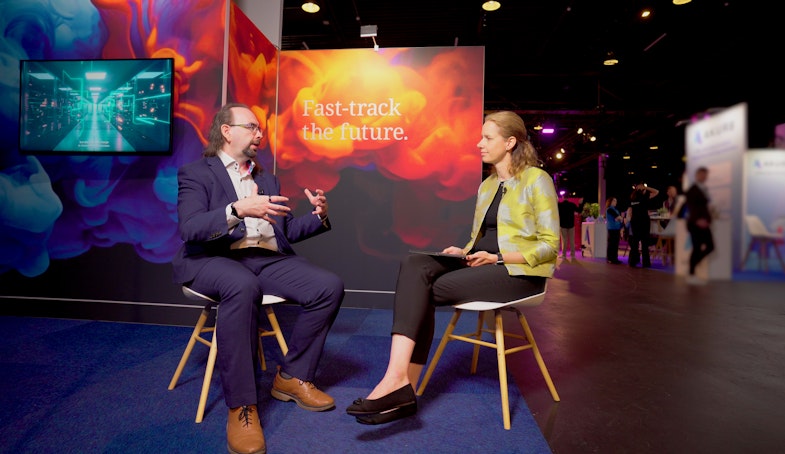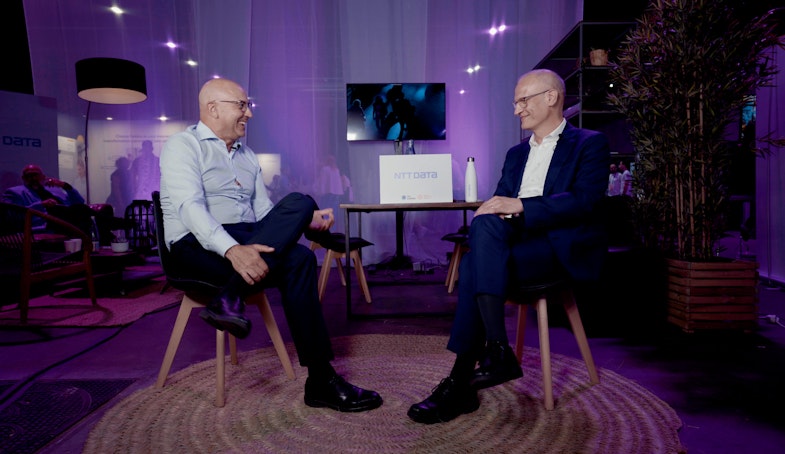
Pacífico Seguros' Customer-Centric Evolution: Insurance Next-Gen
Rolando Quezada, Head of Insurance & Healthcare at NTT DATA Peru, and Renzo Zapata Manager of Benefits for Personal Lines at Pacífico Seguros, exchange views on the insurance landscape in Peru, highlighting among other aspects the low insurance penetration in this country. They also discuss Pacifico's strategy to enhance protection and awareness, including the use of emerging technology for catastrophe claims assessment to improve customer satisfaction.
Speakers
Rolando Quezada
Head of Insurance & Healthcare at NTT DATA Peru
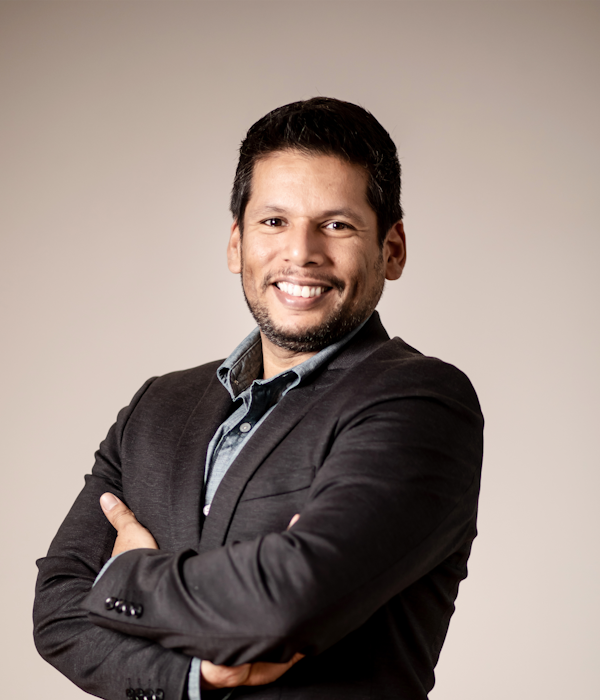
Renzo Zapata
Manager - Benefits for Personal Lines at Pacífico Seguros
Renzo Zapata
Manager - Benefits for Personal Lines at Pacífico Seguros
Transcription
Welcome to a new Insurance Dialogs Episode. My name is Rolando Quezada and I am Partner, Head of Insurance & Healthcare at NTT DATA Perú. Today, we are joined by Renzo Zapata, Personal Lines Claims Manager for Pacífico Seguros.
He has more than 15 years of experience in technology and business roles, and leading products. I hope that in this conversation we can gain access to all the knowledge he has accumulated over the years. Welcome Renzo!
Thank you very much, Rolando. It’s a pleasure to be here. It's always very entertaining to talk about this beautiful industry.
Let's start by going from the general to the particular. How do you see the level of insurance in the country and what do you think are the challenges for the sector and the population?
In recent years the country's insurance sector has grown at a faster pace than the economy itself. That is good news. But it also tells you about the opportunities we have in the sector since we have a low penetration level. If we talk about penetration level, we see indicators compared to the country's GDP, which is at levels of 2%. Or compared to the whole Latam, which is around 2.6%. We also have low penetration levels compared to economies quite similar to ours.
Having a low level of penetration changes it all. When there have been catastrophic events like natural disasters or the Covid-19 pandemic which took place recently, families, individuals and companies have had to assume these eventualities, which have a strong emotional and financial impact. For example, if we look at the El Niño phenomenon that occurred in 2017, we are talking about an impact on the country's economy of more than 8 billion dollars, of which less than 10% has been covered by insurance companies.
We are talking about 600 or 700 million dollars. It speaks again of a huge opportunity and what impact businesses and people have had facing such a catastrophic event. Closer to home was Yaku. When Yaku came we were also talking about an impact of more than 300 million dollars and we as Pacífico provided 25 million dollars.
During the pandemic we have delivered billions of soles to those affected. We have been close to more than 3000 clients during this impact. There is still a huge opportunity to continue to grow and bring this level of protection to more citizens of this country.
Clearly, based on what you explain, we find that there is a very large population in Peru that still does not have access to financial alternatives that can help them mitigate or alleviate issues that sooner or later they may face that could have a dramatic effect on their lives. And what do you think insurance companies should do to try to improve the level of protection for individuals and companies?
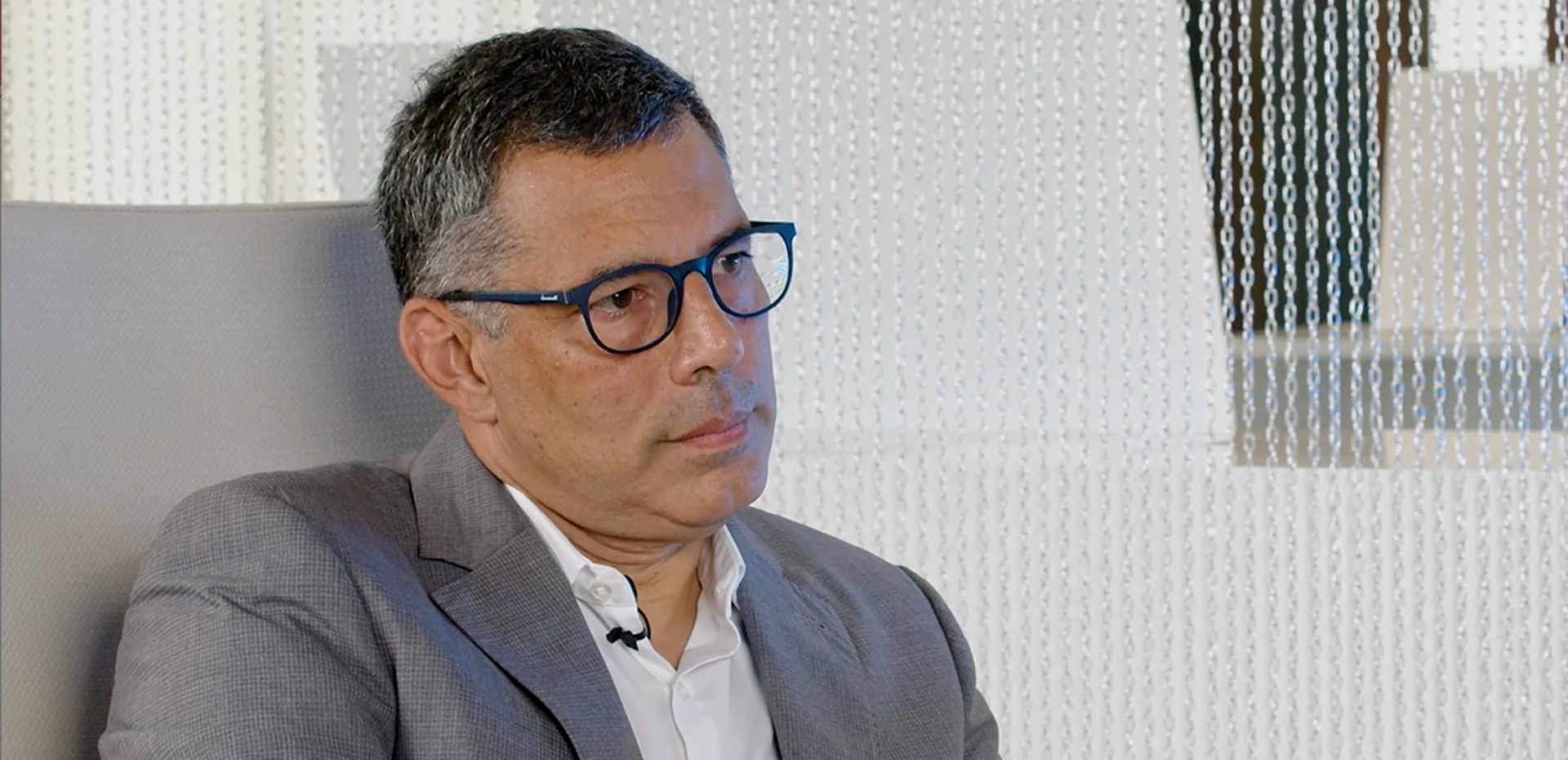
I see two factors. The first has to do with the insurance culture. We all understand what it means to have insurance, and what we can achieve with financial backing by having such service. And the second has to do with products that are appropriate to the changing needs of all our customers. Now, on these two factors, as Pacífico, we have taken a firm decision to lead those changes within the industry in the country.
For example, on the cultural side, we have launched a series of programmes that help everyone to know how the world of insurance works. For example, we have the ABC of insurance, the ABC of Pacífico, which is aimed at explaining to everyone how you can transfer those risks that your business has and you have as a person, that your assets have, to an insurance company. So that in the event of a catastrophy, a claim or something that could affect your assets and patrimony, this is not assumed exclusively by you, but is transferred to an insurance company. That is the objective of Pacífico's ABC.
Then, in the area of risk prevention, we have two programmes. One is aimed at companies, which is Protege 13 & 5, and the other is aimed at individuals, families and entrepreneurs, which is Comunidad Segura. These two have a social purpose, which is basically that we all know the risks to which we are exposed so that clients are not alone when they have an event as difficult as an accident.
We understand that it is not enough to have the right product or the necessary coverage. Experience facing events is also important, And I would like you to explain the importance of your role within your organisation. What is the role that a person assumes in the event of an eventuality or a claim?
The most important thing is that when you have an event, it doesn't start at the event itself. A client's experience starts from the moment he quotes a product with you, from the moment you are showing him which product is the most suitable for his needs, how this product works. And that, throughout the life of this policy, from the moment he buys it until he unfortunately has an event, he knows how this product works, so that on the day he has the event he knows what to do, what coverages are available to him and how to act.
What we are looking for is that the experience in the event of a claim occurs from the beginning and not only at the moment of the event. We know that the moment of a claim is complicated. Nobody likes to have their car stolen, to crash, to have their house flooded, or to lose a family member. It is a very difficult moment and what a client needs from the insurance company is to be accompanied, to know what he has to do or what he is exposed to, what coverage he has and how he can work with the insurance company.
I think you have explained it very well. People have no idea of the complexity behind the handling of a claim. Because we are talking about multiple lines of business involving events of different nature. You said it yourself; it can be a robbery, it can be an accident, there are personal, material risks & third parties involved. And clearly there are many actors involved in each of these events, and they are not the same in every case.
Integrating all these logistics must be a huge challenge. How do you ensure that the experience is consistent regardless of the nature of the policy or what risk you want to cover?
It is certainly a challenge to have such a variety of products as we have in Pacífico. But how do we take on this challenge? Basically on two sides. One. Technologies of Information. Having tools that integrate all the information, all the customer data, all the policies, coverages, what events they have had, what points of contact they have had with us... So that when they contact us again or have a need, we know their story and what it is we can offer.
That is, on the one hand, the technology part for data integrity. On the other hand, even though there are different products and the way of reporting a claim or declaring it is very different between a life, home or auto product, what we do is to break the claim journey into pieces.
And what we are looking for is that in each piece there is an approval of the client's experience for any type of product. In other words, if you are going to declare a claim, you know that there are X tools available to be able to declare it. and that no, it´s not that I am thinking- this is a home insurance, I have to declare it this way, or if it is life, I have to do it by another mechanism.
What we are looking for is that in every part of this journey there is a standardisation of the customer experience.
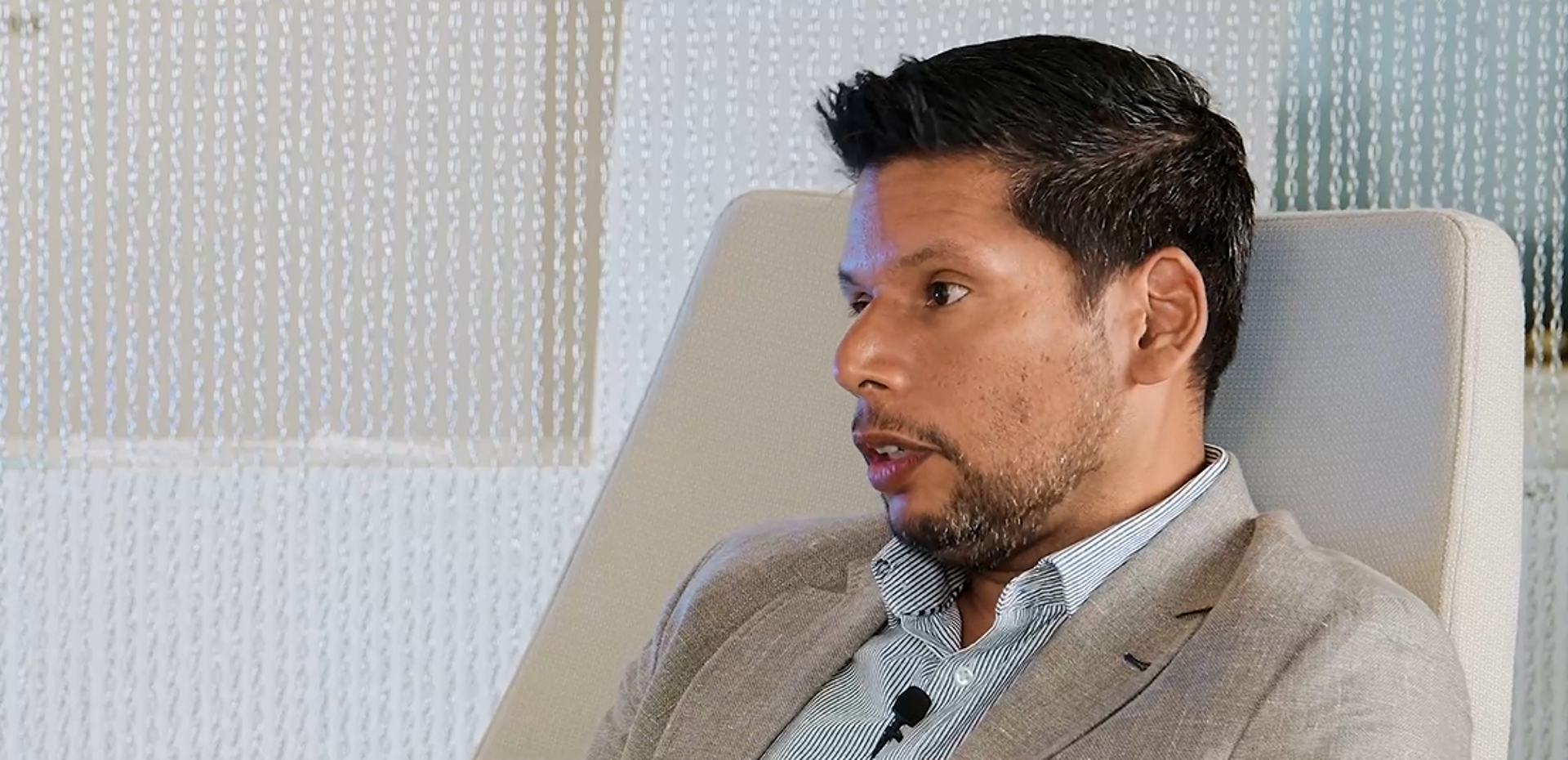
Pacífico Seguros is a company that has been in the market for many years, I understand it began it’s operations in the 40s. It is part of Credicorp, which is the most important financial holding company in the country. It has a very significant market share. It is one of the companies that permanently competes for market leadership.
And in that sense I think that's not gratuitous, it's part of a conscious effort that everyone is making to provide the best possible experience for their customers. What things do you do differently at Pacífico that somehow create this situation?
Our focus is on the customer experience, to a level where we are obsessive about it. It is part of our day-to-day decisions to know that everything we are doing adds value to the customer experience. One of the main levers for customer experience is innovation. There are many new technologies that we can use to support customer experience and we are constantly looking for those new technologies and how to innovate the experience.
It is not about looking for technologies and seeing how we apply them within the processes. On the contrary; we have to see what opportunities and needs our customers have in order to see –obviously with all the knowledge we have, how we can use these new technologies for the benefit of our customers.
We don't look for technologies just to say we use them, but because we find a need, an unmet opportunity for our customer, or because we can do it differently and better for them. And with the knowledge of technologies we do this process of constant innovation.
The relationship with clients is conditioned by these long periods of silence. In the traditional journey, there is the contracting, the renewal and the claim, if one eventually occurs. And many of the insurance companies have been trying to change this relationship, to increase the frequency of customer interactions. And that is valid. But without a doubt, it is in the face of a negative event that the future of the relationship between you and the client is established.
That is the moment of truth, right? Why have you created this concept of the Asu experience? What is behind this concept? For those who are watching us from outside Peru, I want to make it clear that an Asu experience would be the equivalent to a Wow experience.
That's right. The Asu experience is a mantra for us. It is something that we incorporate in all our decisions and what we are looking for is this constant way of surprising the customer. We know The customer has taken out a policy, has trusted us as a company to have this service when they have a claim. And that is what we are there for. For the moment of truth, It is obvious that we have to offer a good service.
The Asu experience goes beyond that. What we are looking for is to surprise the customer. To give them services that are even beyond their expectations in that bad moment when they have had a claim, or what we call the moment of truth. At Pacífico we have been working on that to generate some Asu experiences in several of our products. For example, now that we are experiencing the El Niño phenomenon, we have transformed our processes so that clients who have an event related to that phenomenon really have an Asu experience. They should know that, beyond the fact that the insurance company will reimburse them for the damage, will compensate them, will be there to support them financially, what we are looking for is to be proactive, to provide tools so that the client has a much simpler claims declaration.
It's not the traditional insurance concept of paperwork involved. We want it to be a much simpler experience. In the case of vehicle, for example, we use artificial intelligence, automatic business rules that allow us to give customers answers about the approval of their capture immediately.
In conclusion, what we are looking for with an Asu experience is not only to fulfil what our clients have contracted us to do, but to pleasantly surprise them with the service we can provide them as an insurance company.
Innovation is undoubtedly essential in business today. Generating disruption, trying to do things differently. What are you trying to do in an innovative way to try to achieve this different experience?
We are using new technologies a lot. One of the technologies we hear a lot about today is artificial intelligence. We have been working on artificial intelligence routes. Let's remember that there are two major concepts of artificial intelligence: traditional and generative. We have been working on a traditional artificial intelligence route for some years now. And we are already taking it to our direct customer processes.
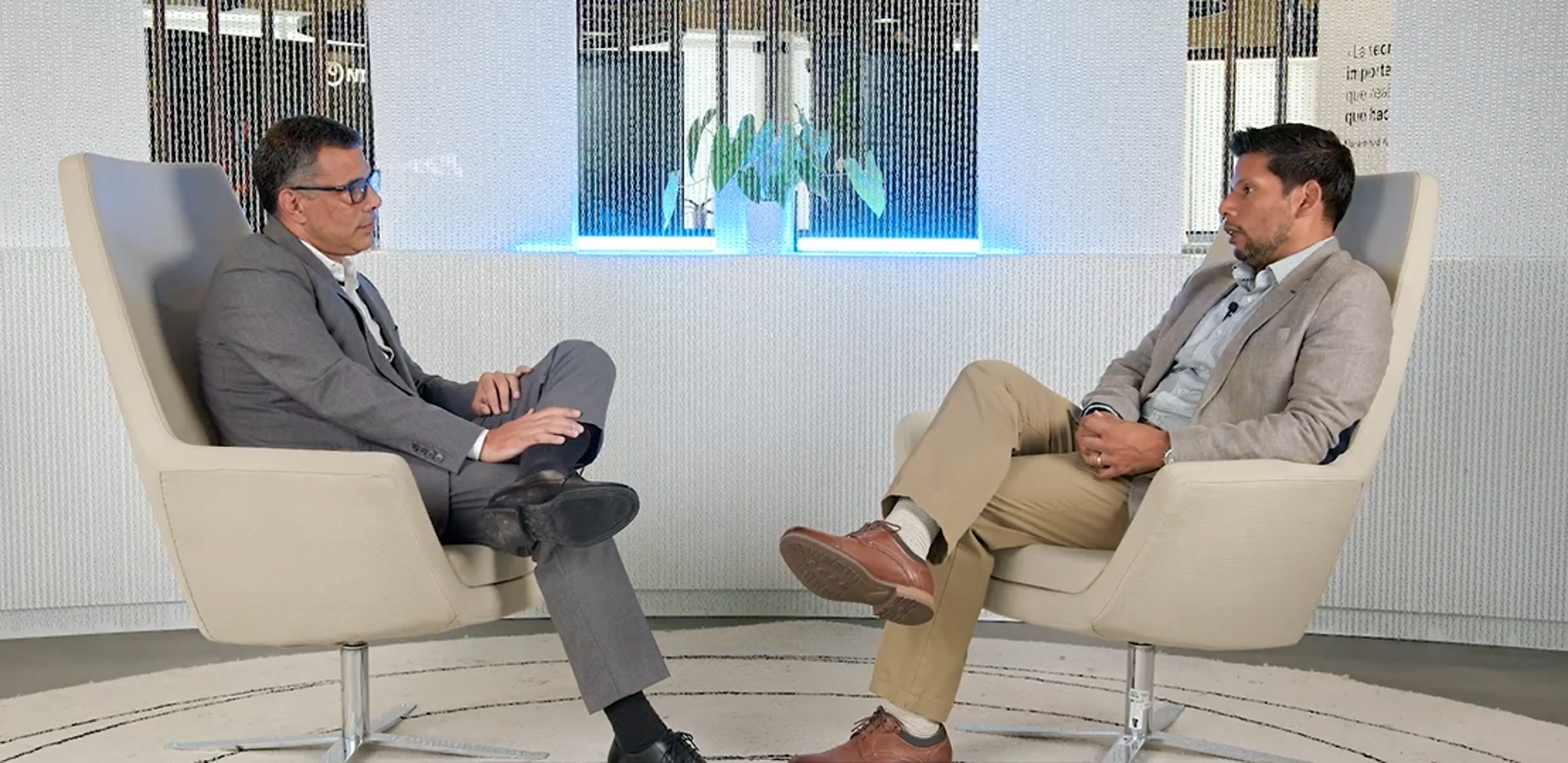
I was telling you a few moments ago about the vehicle issue, where we are already using automatic business rules and traditional artificial intelligence to automate some parts of the process journey. And, on the other hand, we are also on the generative artificial intelligence route. It's a totally new technology and we are exploring to have our set of tools that will allow us to bring that better customer experience.
Once we are clear about all the tools we can apply with generative artificial intelligence, we also know what opportunities we have with our customers. And we are in the midst of applying these new technologies to the experience.
You've described a number of initiatives and it's clear. Let's say that the commitment is absolute, that there are lots and lots of things that you're trying to move forward. But how has these efforts materialised in the customer experience?
We have a series of indicators that measure how much we are helping. We have self-management indicators, which I think is extremely important, so that the client has the information at hand and does not have to look for it. They know, for example, the status of their claim. The speed with which we also attend to the requirements or processes that we have to carry out internally.
But at the end of the day, all of this comes together in a single indicator that measures the level of satisfaction we are achieving with our customers, which is the NPS. We have NPS at company level, at product level and at transactional level. One of the most relevant impacts we have had in recent years in NPS is on our vehicle assistance service. We have reached levels of more than 80 points.
And we continue to look for ways to improve service, to innovate. But always trying to ensure that these improvements and innovations have a direct impact on the customer experience.
Well, in your answer you have given me a clearer idea of what is coming up as a sector. But, I would ask you a more specific question; what is coming up as Pacífico?
Well, in your answer you have given me a clearer idea of what is coming up as a sector. But, I would ask you a more specific question; what is coming up as Pacífico?
As Pacífico, we keep innovating. In fact, we have started a very big technological innovation route focused on experience. We have talked about prevention, the silent period, experience.... And something we are also working a lot on is proactivity at the time of an incident. For example, since last year we have been working in an innovative service on proactive care.
We have acquired drones that started working last year on the Panamericana Sur, on the highway, monitoring high-risk, high-traffic areas. Why? So that, if it finds an accident, the drone can approach, read the vehicle's number, and know if it is one of our clients.
If it's a customer of ours, we can be proactive. And that is what we have been working on for the past year. For this year we have taken the drone to another level because now we are also using it for the attention given to the El Niño phenomenon. In the face of this natural disaster. We have an operations centre that uses these drones to see the areas where there may be heavy rains, where our customers are being affected, and we bring the drones closer to see if our customers are affected and we can attend them proactively without waiting for them to contact us.
So, as Pacífico, we continue to innovate, we continue to be obsessed with the customer experience, from the entire customer journey and all the interactions they have with us.
Well done! I want to end by thanking you Renzo for your presence today. It's been a pleasure and I hope it won't be the last, and that we'll have the opportunity to continue talking in a new episode!
Thank you for the opportunity, for the space. Always happy to talk about these topics that we are passionate about.
And for those who follow us, I just want to remind you that you will find a lot of content like this on our website; insurance.nttdata.com.
Feel free to access this valuable content.
I bid you farewell, see you next time!
